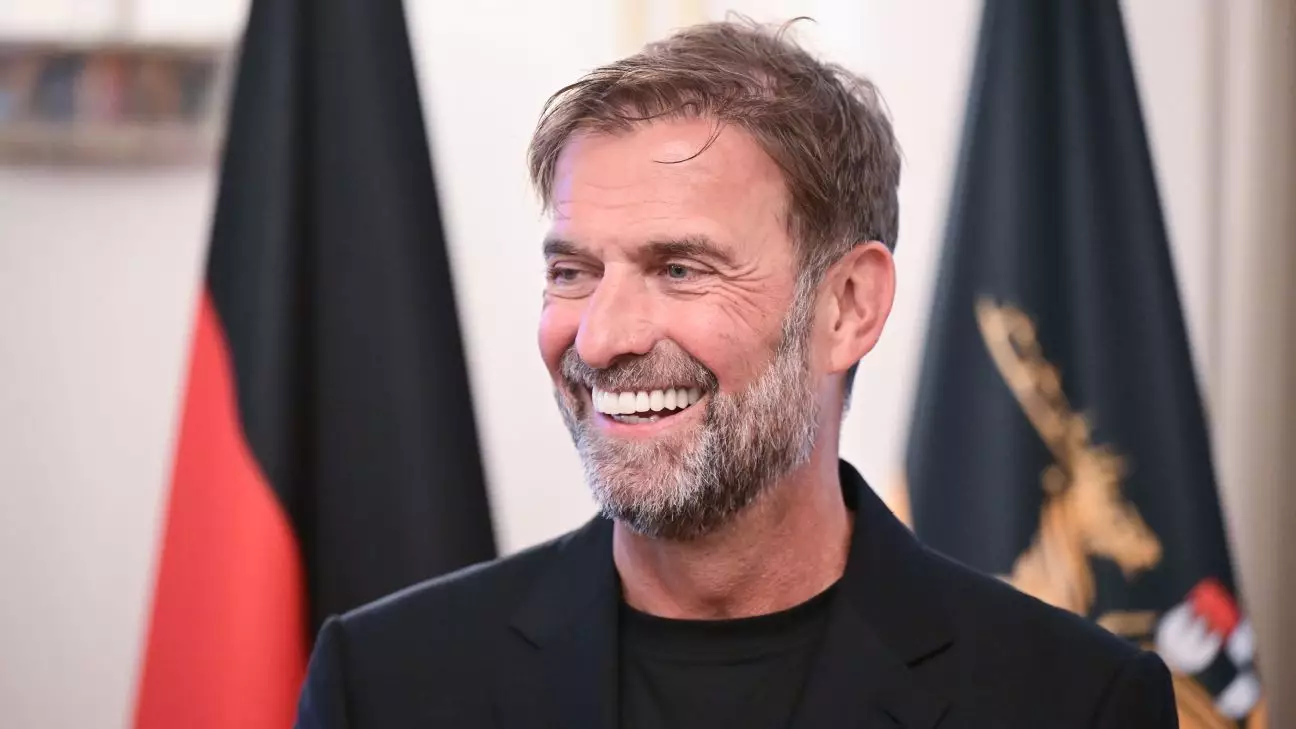Jürgen Klopp has become a household name in football, known for his charismatic personality and his impressive managerial achievements. Although it has been almost ten years since he last worked with a German football club, his presence remains omnipresent in the nation. The recent announcement of his role as “global head of soccer” for Red Bull, who oversees clubs worldwide, has sparked a vigorous debate among fans and pundits alike. This article delves into the implications of Klopp’s new position, the reactions it has garnered, and the broader context within German and international football.
It’s intriguing that Klopp, despite his longstanding absence from the German football scene, remains a prominent figure on television. His work with Deutsche Vermögensberatung, among other brands, has established him as a likable ambassador for various products ranging from electronics to beer. This widespread recognition might have contributed to the surprise when he accepted a position with Red Bull, an organization often viewed with skepticism by traditional football enthusiasts in Germany.
The decision to join Red Bull raises questions about the motivations behind Klopp’s choice. Why align oneself with a brand that many fans regard as controversial when there are numerous clubs he could have opted to join, particularly in a country where he is held in such high regard? Analysis of Klopp’s new role suggests a compelling mixture of personal and professional factors. He is to oversee a global network of clubs linked to Red Bull, thus offering him a unique opportunity to influence football across several leagues and cultures while working alongside familiar faces like Marco Rose and Pepijn Lijnders.
The negative reception of Klopp’s move is not entirely surprising. Red Bull’s entry into football has been contentious, particularly its approach to club ownership, which sidesteps Germany’s stringent 50+1 rule regarding member ownership. Such tactics led to RB Leipzig being viewed as an outsider in the traditional football community. Thus, when Klopp, the “people’s manager,” aligns himself with a brand considered to embody commercialism over community, it’s understandable that many fans feel a sense of betrayal.
The reactions in Germany differ markedly from those in England, where Klopp is often seen as an innovator deserving of freedom in his career choices. Meanwhile, in Germany, fans have exhibited a more guarded response, indicating they see his new role as contradictory to his past image. The headlines, such as the one from Kicker that proclaimed “Kultur-Schock,” demonstrate a profound disconnect between the expectations of German fans and the realities that come with modern football commercialization.
Contextualizing Football Dynamics in Germany
To further explore this disaffection, it is crucial to examine the broader football landscape in Germany, especially under the stewardship of current national team manager Julian Nagelsmann. The German coaching framework is robust, with talented coaches emerging throughout the leagues. The performance of the national team under Nagelsmann has been commendable, showcasing an aesthetic and strategic depth not traditionally seen in German football. In contrast, Klopp’s choice to work with a controversial entity like Red Bull appears to counter the growing emphasis on preserving traditional values in football.
The distinction between Klopp and Nagelsmann’s contexts cannot be overstated. While Nagelsmann appears to carry the support of the public as he molds the national team’s future, Klopp’s shift has ignited discussions about loyalty and authenticity in football. Traditionalists argue that the game’s soul is at risk, hence why Klopp’s acceptance of the Red Bull position is seen as a departure from the values he once championed.
As Klopp embarks on this new journey, it raises important questions about the future of football in Germany and Europe as a whole. Will Klopp’s influence within Red Bull lead to a normalization of its approach within German football, or will it provoke further discord among fans and purists? Crucially, it also sets a precedent for other managers who might be weighing their own futures against personal ethics and commercial realities.
The complexities surrounding Klopp’s role with Red Bull reveal a footballing landscape that is increasingly dominated by commercial interests and corporate identities. As fans wrestle with these changes, Klopp’s next moves will be telling—not just for his career, but for how the relationship between football culture and commercial entities continues to evolve.
Jürgen Klopp’s new role with Red Bull presents a pivotal moment for both his career and the discourse surrounding modern football. While he is undeniably a figure of charisma and success, this new chapter will test the bonds he’s cultivated with fans and observers who value tradition, integrity, and the communal spirit of the game.

